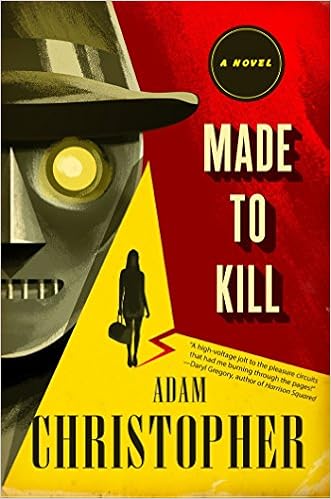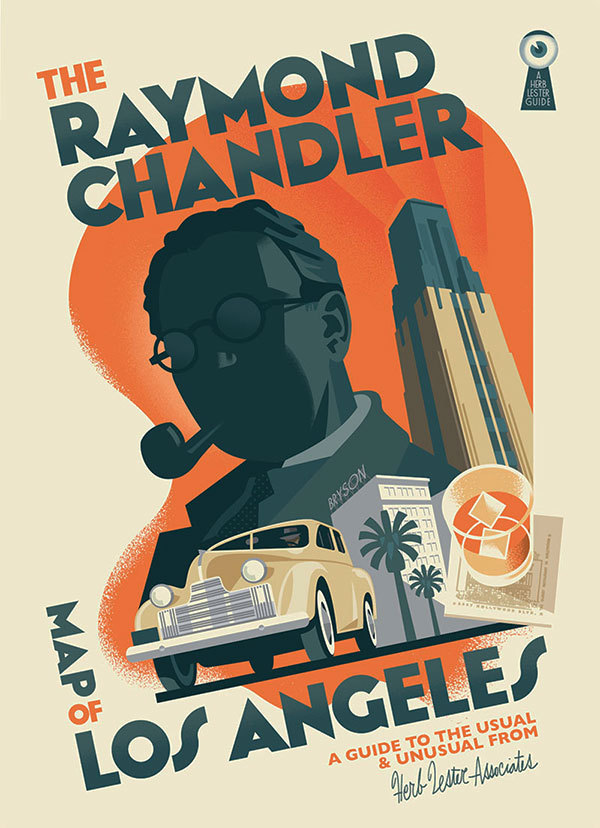
In this alternative version of 1965 Los Angeles, the great experiment of doing menial jobs with "machine men" is over. Raymond Electromatic, a whole new model of machine man, rolled off the line just when the government shut down the experiment and all its products. Now Raymond is the world's last––and only––robot.
Raymond and his wisecracking computer partner, Ada, are the creations of scientist Dr.Thornton, who sets up Ada as the back-office brains and Raymond as the front-office muscle in the Electromatic Detective Agency. Once Thornton has passed on, their prime directive is to make money. Ada has figured out that murder for hire is a lot more lucrative than private detection, so now Ray's real job is hit-robot.
But here's the thing. Even though Ray was top of the line for his time, that doesn't mean he and Ada are all that advanced in some ways. When I say Ada is the back-office brains, I mean her hardware takes up nearly all the space in the back office. Ray's hard-wired with lots of fundamental knowledge, but his short-term memory runs on a tape that he has to give back to Ada every night for her to add to her racks of day-memory tapes. He starts each day with a clean tape and no memory of what he did the day before.
Ray's memory limitation is no problem for a hit-robot who's supposed to do an in-and-out kill on the occasional evening, but it's a drawback for a private detective. Still, Ray takes on a new case when that classic plot device of hardboiled fiction, the damsel in distress, walks through the agency's frosted-glass door. This dame offers Ray a big bag of gold bars if he'll eliminate Hollywood actor Charles David, no questions asked.
Ray's a bit of a movie buff, so he's interested in a case that takes him into Hollywood. What he didn't bargain for is finding a weird sort of cult among the movie world's upper crust. This group seems to be planning something really big; something involving Russians. And even though this is an alternative 1965, Russians are just as ominous as they were in our 1965.
 Adam Christopher's goal here seems to be to write a Raymond Chandler novel with a robot protagonist. (I doubt it's coincidence that the robot protagonist and Chandler have the same first name.) And he does it fairly well. The hardboiled dialog is there, and Ray's deadpan wit makes him a believable mechanical Marlowe.
Adam Christopher's goal here seems to be to write a Raymond Chandler novel with a robot protagonist. (I doubt it's coincidence that the robot protagonist and Chandler have the same first name.) And he does it fairly well. The hardboiled dialog is there, and Ray's deadpan wit makes him a believable mechanical Marlowe.Compared to Chandler, though, this is more lightweight fare, a quick, fun read. And it's best to treat it that way and not think too much about the fact that most of the time there's not a compelling reason in the way the story is presented to have Ray be a robot at all. Or that there are way too many sentences including the words "I frowned on the inside" or someone "made a sound like" a cement mixer, a beehive, steam engine brakes, a cat pawing at a mouse inside an air vent, two rocks going for a joyride in a clothes washer, a garbage truck grinding its gears, a sewing machine on overdrive, a clutch slipping and at least a couple of dozen other things. I also would have liked to see more development of the alternative world of 1965, other than just a couple of tantalizing glimpses.
Still, I had fun reading the story, despite its significant drawbacks. The tone is funny with an edge, I grew fond of Ray and the time zipped by as I read. One other thing I should mention; though this is billed as the first in a trilogy, it stands on its own, so there is none of that cliffhanger stuff that makes me want to throw a book against the wall.
Note: I received a free advance review copy of the book. Versions of this review may appear on Amazon, BookLikes and other reviewing sites under my usernames there.

No comments:
Post a Comment